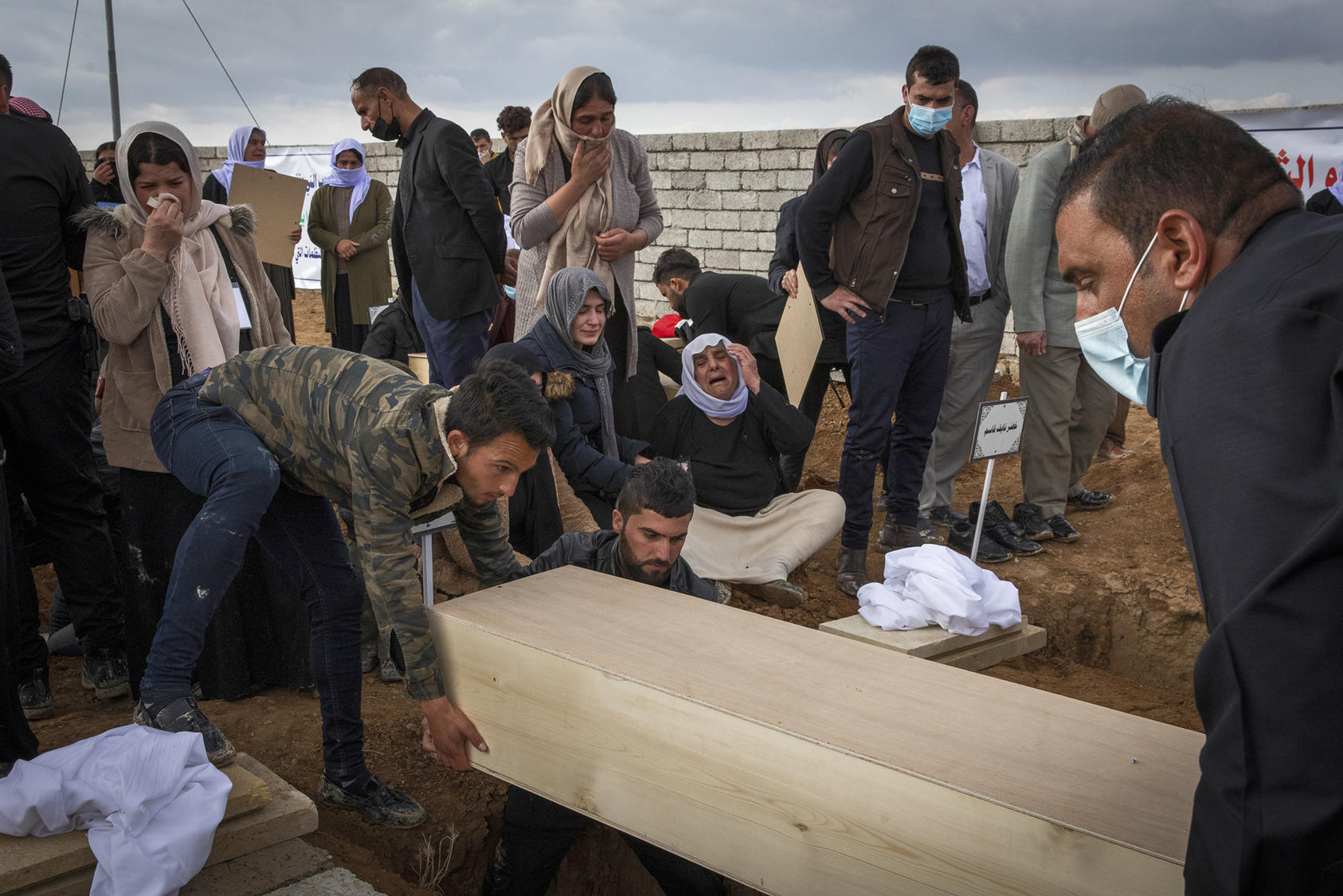When Pope Francis visited Iraq this year, he met and prayed with religious communities across the country’s spectrum of faiths. Among the wounds he sought to heal, one remains massive and unaddressed: the 2,763 Yazidi women and children kidnapped seven years ago by ISIS whose fates remain unknown. In a world that still needs to build defenses against mass atrocities, our inaction against this crime represents an inexcusable failing. It is a failing we must begin to repair.

When Islamic State (ISIS) fighters rampaged in 2014 through the Yazidi ancestral homeland of Sinjar in northwestern Iraq, they killed Yazidi men, destroyed Yazidi homes and places of worship, and enslaved women and children. Their barbarity against Yazidis, Christians, Shias and others shocked the world. After their attack, both the Obama and Trump administrations described their assault as an attempted genocide.
Others also acknowledge this bloodshed as either genocide or a crime against humanity—United Nations investigators, the Arab League, and the European Parliament. Yet no global effort has followed to find the missing women and children. And because no concrete action followed, grieving Yazidi families began to view the important genocide statements as mere rhetoric.
It is time to change words into deeds. Seven years after their abduction, a new effort is needed to find the women and children.
Locating these women and children—dead or alive—would close a gaping hole in the hearts of anxious Yazidis. I remember a middle-aged father who stepped forward from a group of Yazidis I met in their holy city of Lalish, just outside of ISIS-occupied territory in 2016. I was visiting as a State Department special envoy focused on religious minorities. The man handed me 15 pages. They listed his family members whom ISIS had kidnapped or killed—but he did not know which. Tears welled in his eyes as he pleaded for help.
In response, groups like the Free Yazidi Foundation, the Coalition for Genocide Response and Nadia’s Initiative are working to spur new global efforts to find the 2,763 missing Yazidi women and children, some believed to be in Syria and perhaps in the al-Hol displacement camp. While it won't be easy, there are some basic next steps to pursue.

We Can Take Action
Leadership is needed from the United States, France and the United Kingdom. These permanent members of the U.N. Security Council could launch a "find our girls" effort in Syrian and Iraqi refugee camps. In addition, calls are increasing for U.N. member states to create an independent mechanism to find the missing in Syria, including from the High Commissioner for Human Rights Michelle Bachelet and other U.N. observatory and monitoring bodies. The United States, Britain, France and others could initiate a resolution, either in the U.N. Human Rights Council or the U.N. General Assembly, to create a U.N. mandate to search for the missing. And they could contribute funds to the initiative.
Even without a specific resolution, member states can partner with the relevant U.N. mechanisms to take action. For example, the secretary general can issue a global call and direct his special envoy for Syria to focus on the issue. U.N. special rapporteurs could be sent to the al-Hol camp to evaluate. Other United Nations bodies can help, notably the U.N. mission in Iraq (UNAMI) and UNHCR offices working with refugees in Iraq and Syria.
Some will say, despite this tragedy, working to help the Yazidis is too difficult because of the Syrian quagmire. It will be tempting just to express concern and do nothing. After ISIS' defeat, progress in rebuilding Yazidi life in Iraq has been slow. Lack of prosecutions, political instability, unregulated armed groups, broken infrastructure plague reconstruction efforts and deter returns.
But some positive steps have occurred—and they should encourage more. On the eve of Pope Francis' visit, Iraq's parliament passed the Yazidi Survivors Bill, which authorizes assistance to survivors of ISIS atrocities. Restoration efforts are increasing in Sinjar. Yazidis and their allies are uncovering mass graves to identify those killed, which provides closure to families and builds a case for future prosecutions. Individual Yazidis are doing what they can to bring home their kin.
An international effort to find the missing is needed. We best honor the dead by searching for the living. Unfortunately, Yazidis lack powerful tribal connections or co-religionists living abroad to support them. They need help.
To concretely assist Yazidis and move past platitudes, the international community must take steps to locate the missing 2,763 women and children before the eighth anniversary of their victimization arrives next August. ISIS’s defeat will truly come by restoring Yazidis to their homeland, ensuring their safety, security and future. And by reuniting their families.



